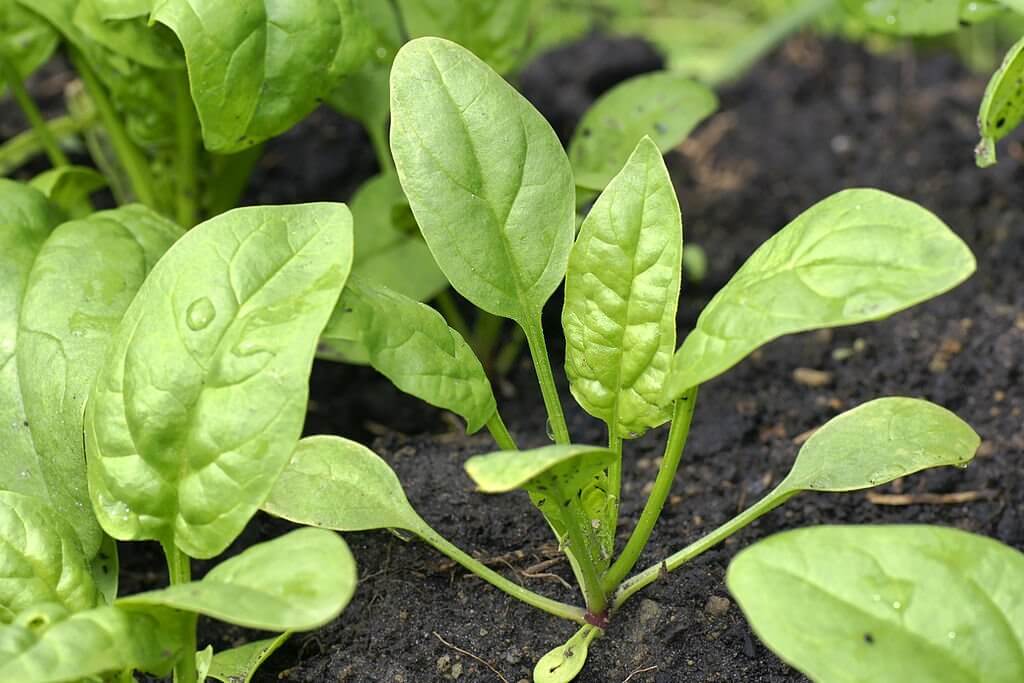Wondering if your shelled friend can munch on some spinach?
Turtles can eat spinach, but it should be given in moderation due to its high oxalate content, which can inhibit calcium absorption.
However, before adding spinach to your turtle’s menu, you should be aware of crucial considerations. We’ll explore the benefits and potential risks of feeding your turtle spinach.
Nutritional Benefits of Spinach
Here are the nutrients for 100g of spinach per the USDA.
- Water: 91.4 g
- Carbohydrates: 3.63 g
- Fat: 0.39 g
- Protein: 2.86 g
- Fiber: 2.2 g
- Calcium: 99 mg
- Phosphorus: 49 mg
- Potassium: 558 mg
- Magnesium: 79 mg
- Vitamin A: 469 µg
- Vitamin C: 28.1 mg
- Vitamin K: 483 µg
Spinach is like the superhero of the veggie world, packed with nutrients that are great for us and our turtle friends. Imagine spinach as a tiny, leafy powerhouse loaded with vitamins A, C, and K and minerals like iron and magnesium. It’s like giving your turtle a little shield against health woes, boosting their immune system, and keeping their shell strong and shiny.
But here’s where it gets interesting: spinach isn’t just about the vitamins and minerals. It also has fiber, which helps keep your turtle’s digestive system running smoothly, like keeping the plumbing in good shape. Plus, the water content in spinach keeps them hydrated, which is a big deal for these adorable reptiles.
Potential Risks of Feeding Spinach To Turtles
Here’s the scoop: a single cup of raw spinach packs 656mg of oxalates. These compounds are the secret agents of the vegetable world, binding to calcium and making it play a vanishing act from your turtle’s body. It’s like feeding them a leafy green thief that steals away crucial nutrients needed for strong bones and a healthy shell.
But wait, there’s more intrigue in the world of spinach. Its high vitamin A content is another double-edged sword. Sure, vitamin A is crucial for keeping your turtle’s eyes sparkling and their immune system robust.
However, if you overdo it with the spinach, you might develop vitamin A toxicity, which can include swollen eyelids and a loss of appetite. This is not exactly the dinner party we were hoping for.
How to Properly Prepare Spinach For Turtles?
Starting with organic spinach can reduce pesticide exposure, which is always a plus for your turtle’s health. It’s like choosing the cleanest fuel for their tiny engines.
Even if it’s organic, always rinse the spinach under cool water. This step helps wash away any lingering dirt or tiny critters that might have hitched a ride.
Here is a game-changer. Briefly blanching spinach in boiling water for about 30 seconds can help reduce its oxalate content. After blanching, dunk the spinach in ice-cold water. This stops the cooking process and keeps the spinach somewhat crisp.
Turtles aren’t known for their knife skills, so it’s up to you to chop the spinach into bite-sized pieces. This makes it easier for them to eat and can prevent any choking hazards.
How Much And How Often To Feed Spinach?
A good rule of thumb is to make spinach a small part of a larger, varied meal. For a visual, imagine spinach taking up no more than about 10% of the total volume of the veggies you’re offering at a time. This could mean a few small, blanched leaves mixed into their regular veggie medley.
As for how often to include spinach in their diet, aim for no more than once a week. This frequency allows your turtle to benefit from the nutrients in spinach without risking the potential downsides of overconsumption.
Remember, the goal is to mimic the diversity they’d experience in their natural habitat. Incorporate a variety of other turtle-safe vegetables, aquatic plants, and, depending on the species, some protein sources alongside spinach.
Alternatives Vegetables For Turtles
- Kale
- Carrots
- Zucchini
- Squash
- Dandelion greens
- Bell peppers
- Pumpkin
- Watercress
- Romaine lettuce
- Cucumber
Final Thoughts
Turtles can enjoy spinach, but it’s all about giving it to them correctly. Because of its high oxalates, which can mess with their calcium absorption, spinach should be a small, occasional treat. Mixing spinach with other turtle-safe veggies ensures they get a balanced diet without any risks.
Related Posts:
Sources:

